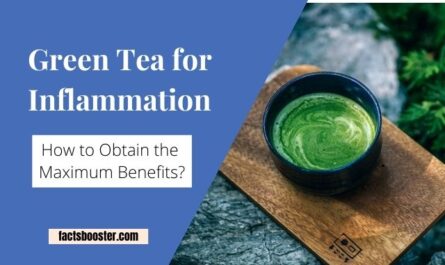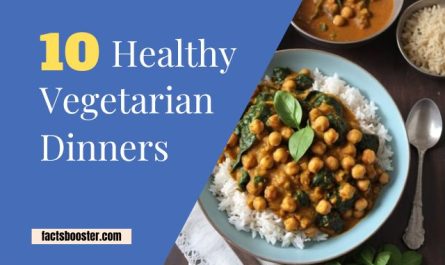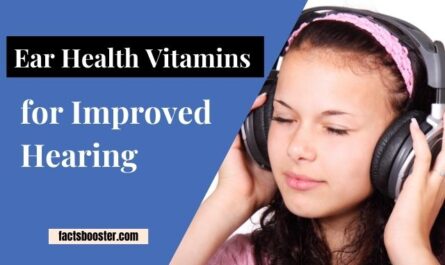Cortisol, known as the stress hormone, impacts our health significantly. Excess levels may lead to various concerns from anxiety to weight gain. Fortunately, dietary choices stand as a pivotal factor in managing cortisol. This exploration dives into nourishing foods that aid in reducing cortisol, underlining the indispensable role diet plays in our well-being.
Key Takeaways:
- Understanding cortisol’s role is crucial for health management.
- Certain foods have the power to lower cortisol levels.
- Diet plays a vital role in maintaining physiological and psychological balance.
What Happens When Cortisol is High?
Cortisol, your body’s primary stress hormone, has a significant impact on your health. Elevated cortisol levels over time lead to unwanted outcomes. You may experience heightened anxiety, noticeable weight gain, and unrefreshing sleep.
These symptoms signal that your body’s cortisol management may be off balance. Achieving a harmonious cortisol level becomes essential for maintaining good health. It underscores the urgency in finding ways to lower cortisol, ensuring your body’s stress response does not compromise your well-being.

Cortisol Reduction Diet – What Foods Reduce Cortisol Levels?
Foods have a significant role in managing your cortisol, potentially lowering your stress. This part of the discourse delves into the Cortisol Reduction Diet, highlighting how certain nutritional choices might lead to reduced cortisol levels.
The emphasis here rides on metabolizing cortisol effectively and understanding which foods to embrace and which to avoid for this purpose. It stands crucial for you to grasp the connection between what you consume and your body’s cortisol regulation.
Indeed, through dietary adjustments, you wield the power to diminish cortisol naturally, fostering an overall state of calm.
Foods High in Vitamin B
In the journey to lower cortisol, understanding the pivotal role of Vitamin B, particularly B12, becomes essential. This nutrient aids significantly in metabolizing cortisol, facilitating its breakdown and thus reducing its levels in the body. (1)
Foods enriched with Vitamin B — think fortified whole grains and specific animal sources — stand out as allies in this mission. Savoring these can steadily steer you toward a state of relaxation and equilibrium, positioning diet as a cornerstone in stress management.
Engaging with such a diet not only assists in diminishing cortisol but fosters an environment conducive to overall wellness.
Foods rich in Vitamin B:
- Leafy green vegetables (such as spinach, kale, and broccoli)
- Meat (such as beef, chicken, and pork)
- Fish (such as salmon, tuna, and trout)
- Eggs
- Dairy products (such as milk, cheese, and yogurt)
- Legumes (such as beans, lentils, and peas)
- Nuts and seeds (such as almonds, sunflower seeds, and peanuts)
- Fortified cereals and breads
- Avocado
- Bananas
Read more:
Foods Rich in Magnesium
Magnesium has been shown to embody a crucial role in unwinding and stress mitigation. This mineral aids in reducing cortisol, effectively helping your body transition into relaxation mode. (2)
Foods high in magnesium, like pumpkin seeds, not only provide a magnesium boost but also contribute to lowering cortisol levels. Another indulgent option involves dark chocolate, particularly varieties with a high cacao content.
It’s not merely a treat; it’s a strategic move towards tranquility. Opting for dark chocolate with at least 90% cacao right before bedtime can be a delightful way to reduce your cortisol and coax your body into a state of calm.
The presence of magnesium in these foods makes them a powerful ally in your Cortisol Reduction Diet, turning them into essential nighttime rituals for stress reduction and better sleep quality.
Foods Rich in Magnesium:
- Leafy green vegetables (such as spinach, kale, and Swiss chard)
- Nuts and seeds (such as almonds, cashews, pumpkin seeds, and sunflower seeds)
- Whole grains (such as brown rice, quinoa, and oats)
- Legumes (such as black beans, chickpeas, and lentils)
- Fish (such as salmon, mackerel, and halibut)
- Avocado
- Bananas
- Dark chocolate
- Yogurt
- Tofu
Foods High in Omega-3 Fatty Acid
Omega-3 fatty acids have emerged as powerful allies in the quest to lower cortisol and bolster brain health. These essential fats play a critical role in reducing inflammation, a common precursor to elevated cortisol levels.
Research has shown that regular intake of omega-3s can mitigate the body’s stress response, thus contributing significantly to stress reduction and enhanced mental well-being.
Preferred sources of these beneficial fats include fatty fish like salmon and mackerel, as well as plant-based options such as flaxseeds and chia seeds. By incorporating these foods into your diet, you actively support your body’s efforts to maintain balanced cortisol levels, ensuring a healthier, more serene state of mind. (3)
Foods Rich in Omega-3 Fatty Acid:
- Fatty fish (such as salmon, mackerel, sardines, and trout)
- Flaxseeds and flaxseed oil
- Chia seeds
- Walnuts
- Hemp seeds and hempseed oil
- Soybeans and soy products (such as tofu and edamame)
- Canola oil
- Brussels sprouts
- Spinach
- Seafood (such as shrimp and crab)
Protein-Rich Foods
Protein took center stage in the quest to lower cortisol, offering a potent means to stabilize blood sugar levels. This stabilization, in turn, played a crucial role in reducing stress. (4)
Consuming protein-rich foods had been recognized for its capacity to sustain energy, proving instrumental in managing cortisol effectively.
Among the recommended sources were lean meats, legumes, and dairy products. These foods, integral to a
Cortisol Reduction Diet, enabled individuals to reduce their cortisol levels significantly. It was advised to ensure a balanced intake of these protein sources throughout the day.
This approach not only facilitated in lowering cortisol but also supported overall well-being, underscoring the profound impact of dietary choices on managing stress.
Foods Rich in Protein:
- Lean meats (such as chicken breast, turkey, and lean beef)
- Fish (such as salmon, tuna, and cod)
- Eggs
- Dairy products (such as milk, yogurt, and cheese)
- Legumes (such as beans, lentils, and chickpeas)
- Nuts and seeds (such as almonds, peanuts, and chia seeds)
- Tofu and tempeh
- Quinoa
- Greek yogurt
- Cottage cheese
Foods Rich in Probiotics
A well-nourished gut had been shown to ease stress and help in reducing cortisol. By including probiotic-rich foods like yogurt and kombucha, you take a critical step towards balancing your gut flora.
This act, in turn, supports the lowering of your body’s cortisol levels. The link between a healthy digestive system and enhanced mood has been well-documented. Foods teeming with probiotics offer a pathway to gut wellness, directly impacting how well you manage stress and metabolize cortisol. (5)
This suggests a symbiotic relationship between our dietary choices concerning probiotic intake and our body’s ability to modulate stress responses effectively. Hence, strategically incorporating such foods into your diet could be seen as a fundamental aspect of a broad strategy aimed at reducing cortisol for long-term well-being.
Foods Rich in Probiotics:
- Yogurt (with live and active cultures)
- Kefir
- Sauerkraut
- Kimchi
- Miso
- Tempeh
- Kombucha
- Pickles (fermented in brine, not vinegar)
- Traditional buttermilk
- Some types of cheese (such as Gouda, cheddar, and cottage cheese)
Foods High in Antioxidants
Antioxidants have become warriors in the battle against stress-induced cellular damage. They seek out and neutralize free radicals, menacing molecules that have been implicated in raising cortisol levels. (6)
By incorporating foods rich in these powerful substances, you contribute to your body’s resilience against stress.
- Berries, such as blueberries, strawberries, and raspberries, burst with antioxidants that can help lower cortisol.
- Nuts, including almonds and walnuts, not only offer a satisfying crunch but also supply your body with these essential compounds.
Turning to these nutrient-dense options will empower your system to manage stress more effectively. The consumption of such foods could pave the way to achieving a more balanced state where cortisol reduction becomes a natural byproduct of your dietary choices.
Foods to Avoid
In your journey to lower cortisol, certain culprits in your diet might work against your goals. Foods that can unwittingly raise cortisol include those high in sugar, fat, and those heavily processed.
These should be minimized or avoided to maintain balanced cortisol levels. Consuming high-sugar items can lead to spikes in blood sugar levels, which, in turn, triggers the release of more cortisol into your bloodstream.
This response was meant to be beneficial in situations where quick energy was needed for ‘fight or flight’ scenarios, not for sitting at your desk or lounging on the couch.
Similarly, high-fat foods, especially those containing unhealthy fats, have been linked to increased cortisol levels. They put a strain on your body, prompting it to release more cortisol as it works harder to digest these heavy foods.
Processed foods, laden with additives and low in nutritional value, also contribute to this cycle of stress on the body and subsequent cortisol release.
Adopting mindful eating habits is crucial for anyone looking to reduce their cortisol. Focus on whole, nutrient-dense foods and maintain a regular eating schedule. This approach not only supports balanced cortisol levels but also enhances overall well-being.
Remember, managing stress and lowering cortisol through your diet isn’t about restriction; it’s about making informed, healthful choices that nourish your body and mind.
Bottom Line
Your journey to lower cortisol doesn’t end at the dinner table. A holistic approach, intertwining diet, exercise, and lifestyle shifts, proves paramount. You wield the power to control nutrition, a pivotal factor in your battle against stress. Let this guide serve as a cornerstone in devising a comprehensive stress management strategy.


